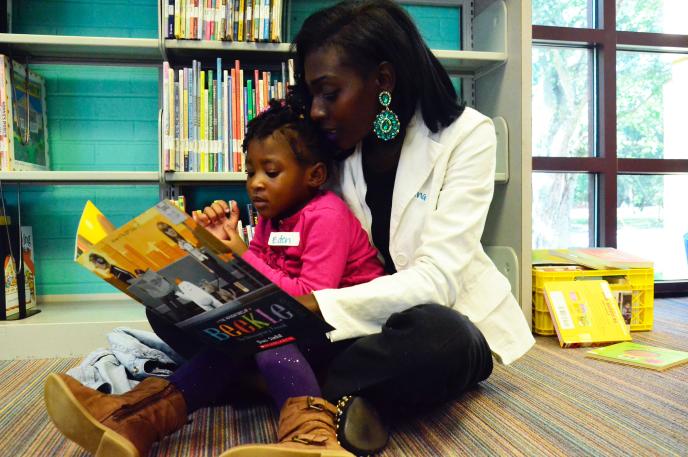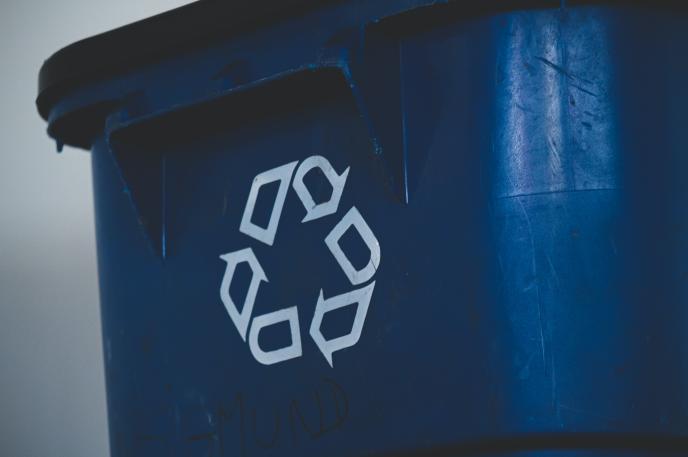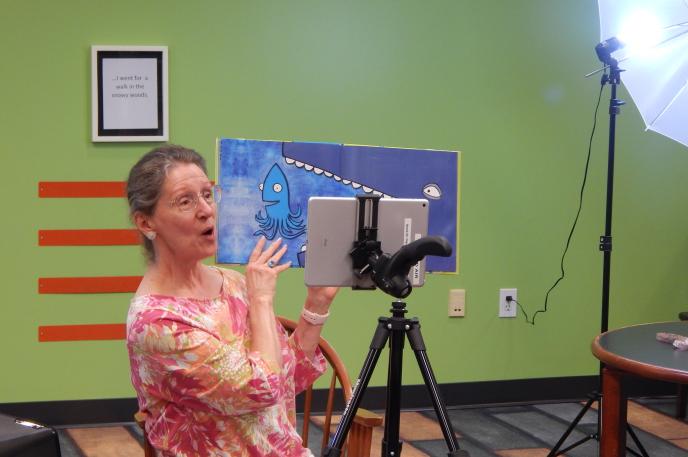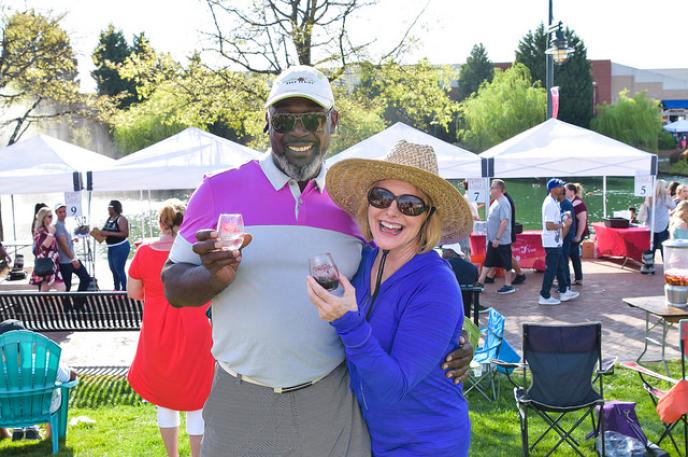
Reflections of University City WineFest 2019
May 31, 2019
WineFest goers twenty-one and up sampled more than 100 wines, listened to music and filled their bellies along the boardwalk this past April. To get you in the mood to enjoy wine in the upcoming hot, hot months, we’ve paired some of the most popular wines with books and movies.
Try Wine Reads or The Booklovers' Guide to Wine for how to pair your wines with books. Or, take our word for it with this list.
Book clubs can pair a book with a different wine each month; cozy mysteries’ fun, pun-filled titles make it easy to pick and pair. Try Ellen Crosby’s Wine Country series, Joni Folger, or Nadia Gordon.
Cabernet Sauvignon is the most popular red wine in the United States. Often described as “full-bodied” or “complex,” it’s a major industry in cool climates from California to Chile. Try with the complex characters found in Alice Walker’s The Color Purple or Isabel Allende’s Chilean saga Daughter of Fortune.
Merlot, derived from the French word for “blackbird,” has hints of plums and is considered a blending grape. Pair a big glass with Janet Evanovich’s Stephanie Plum crime series or Chris Bohjalian’s around-the-world thriller The Flight Attendant.
Chianti is a dry red Italian wine and pairs well with pizza. Enjoy a glass with your next slice while watching Mystic Pizza. This wine also is best enjoyed with fava beans according to Hannibal Lector; sip it while reading Thomas Harris’ other works.
Pinot Noir made popular in the 2005 movie Sideways, is a crowd-pleasing lighter red wine. Try it with universal crowd-pleasers like Paolo Coelho’s The Alchemist or any title by Agatha Christie.
A light and fruity Chardonnay pairs with “cheesy” cozy mysteries like Avery Aames’ For Cheddar or Worse or The Long Quiche Goodnight. This wine also is perfect for lighter beach reads by Dorothea Benton Frank, Mary Kay Andrews, or Elin Hilderbrand. Be sure you’ve signed up for Wowbrary to sign up for new release by these popular authors!
Are you afraid of acids? Do tannins terrify you? If you feel intimated by wine lingo, get up to speed with these handy guides and tutorials:
- Try columnist Marissa Ross’ humorous take on wine education in Wine, All the Time.
- Ophélie Neiman’s Wine Isn't Rocket Science takes the guesswork out of wine tasting in an easy-to-follow guide.
- Karen MacNeil’s The Wine Bible (digital only) routinely shows up on top 10 lists.
- The Beginner’s Guide to Wine class via Universal Class is free with your library card.
- If you have mastered the basics, Madeline Puckett’s Wine Folly takes your wine knowledge to a higher level.
For a different kind of pairing, come to one of the Library’s book clubs that take place at local wine bars or breweries! Our graphic novel book club meets every fourth Monday at the Wine Vault in the University City area. In May, the 20s and 30s book club discussed Charlotte author Kimmery Martin’s The Queen of Hearts.
Didn’t make it to WineFest this year? Mark your calendars for the next WineFest event planned for April 18, 2020. In the meantime, we hope the varieties and suggested titles above will take you to the vineyard of your dreams this summer!

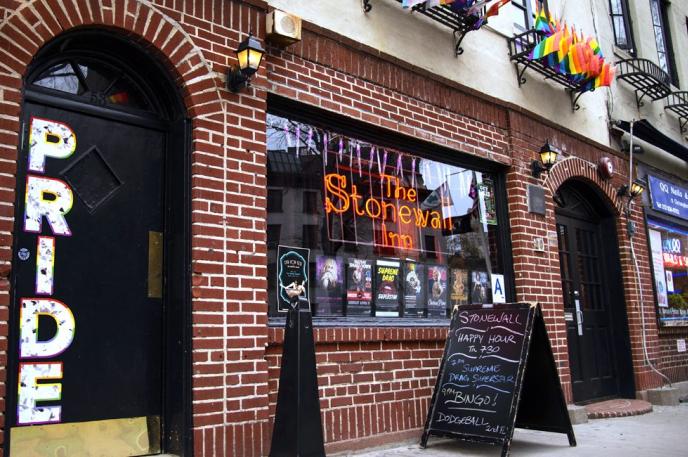
 On June 28, 1969, the New York Police Department raided the historic Stonewall Inn, a gay bar, in Manhattan. Police raids on gay establishments were common in the 1950s and 1960s when social and political anti-gay and homophile efforts flourished. Gay bars were places of refuge where LGBT people could safely be in community without fear of public ridicule or police aggression. However, on that fateful morning, patrons of the Stonewall Inn decided to fight back against the police and the injustices against them. The week-long riots, which coincided with the civil rights and feminist movements, became the catalyzing moments that birthed the gay liberation movement.
On June 28, 1969, the New York Police Department raided the historic Stonewall Inn, a gay bar, in Manhattan. Police raids on gay establishments were common in the 1950s and 1960s when social and political anti-gay and homophile efforts flourished. Gay bars were places of refuge where LGBT people could safely be in community without fear of public ridicule or police aggression. However, on that fateful morning, patrons of the Stonewall Inn decided to fight back against the police and the injustices against them. The week-long riots, which coincided with the civil rights and feminist movements, became the catalyzing moments that birthed the gay liberation movement.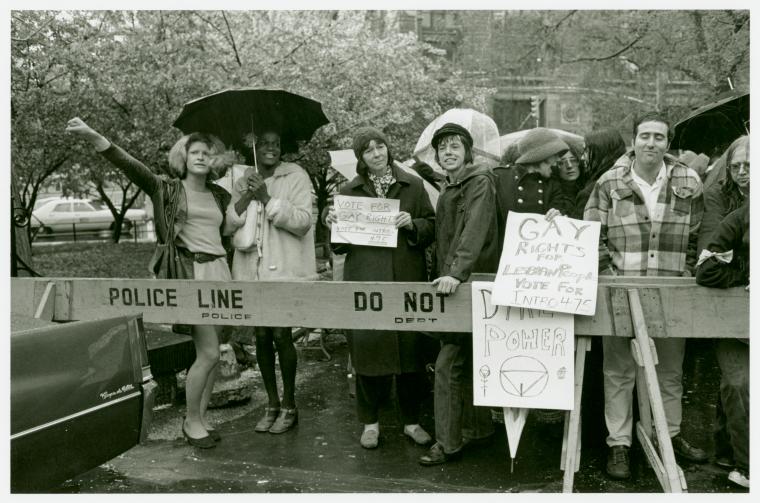 Just six months after the uprising at Stonewall, numerous grassroots gay and human rights organizations began to form across the U.S. such as the Gay Liberation Front (GLF) and the Gay Activists Alliance (GAA). Since the Stonewall riots, the LGBT community has made many strides against injustice. In October 1979, the first National March on Washington for Lesbian and Gay Rights took place in D.C. which drew an estimated attendance of 75,000-125,000 supporters. On March 2, 1982, Wisconsin became the first U.S. state to outlaw discrimination based on sexual orientation and in April 2015, the Supreme Court ruled that states cannot ban same-sex marriage. For a current list of LGBT rights, milestones and fast facts
Just six months after the uprising at Stonewall, numerous grassroots gay and human rights organizations began to form across the U.S. such as the Gay Liberation Front (GLF) and the Gay Activists Alliance (GAA). Since the Stonewall riots, the LGBT community has made many strides against injustice. In October 1979, the first National March on Washington for Lesbian and Gay Rights took place in D.C. which drew an estimated attendance of 75,000-125,000 supporters. On March 2, 1982, Wisconsin became the first U.S. state to outlaw discrimination based on sexual orientation and in April 2015, the Supreme Court ruled that states cannot ban same-sex marriage. For a current list of LGBT rights, milestones and fast facts 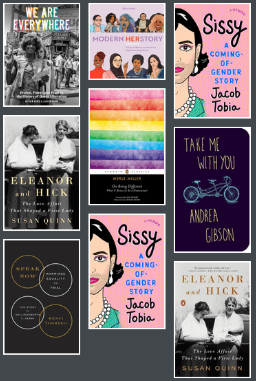
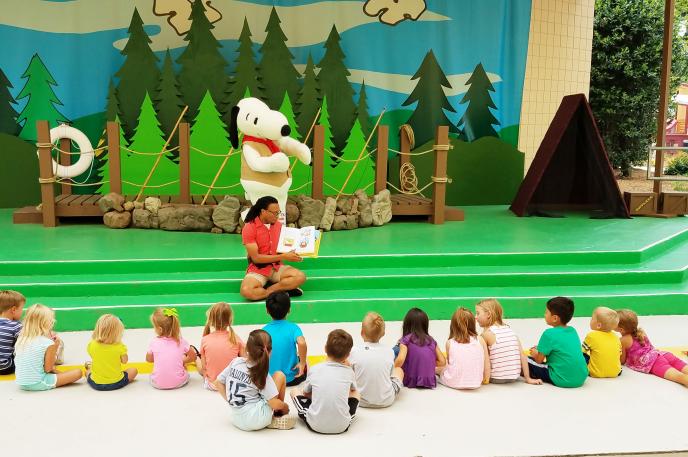

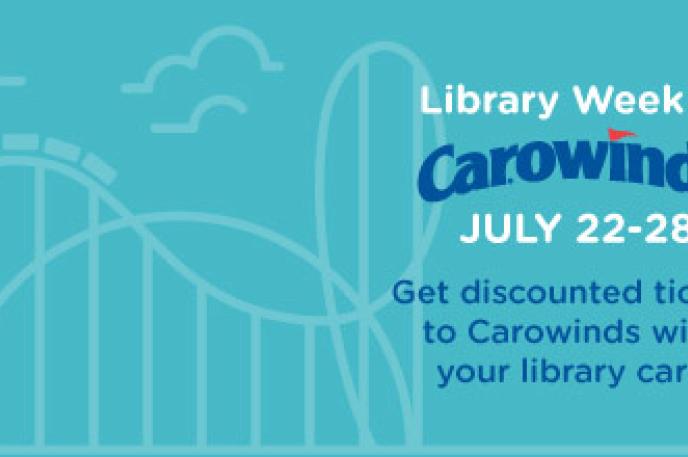
 Want to purchase discounted tickets for the special Library Week? In 2018, hundreds of cardholders took advantage of this special promotion!
Want to purchase discounted tickets for the special Library Week? In 2018, hundreds of cardholders took advantage of this special promotion!
